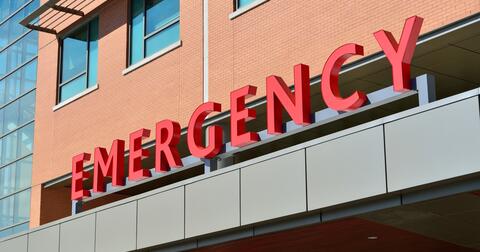‘Senseless’ Elective Surgery Lockdown May Put Hillsdale Hospital Under
Testing, x-rays, blood draws, operating room, staff: ‘We lose everything’
It has been more than six weeks since nonessential medical procedures were halted by an executive order issued by Michigan Gov. Gretchen Whitmer in an effort to combat the COVID-19 epidemic. Now, Hillsdale Hospital in Hillsdale County has written an open letter urging the governor to lift the ban on elective surgeries. The letter also requests emergency aid from the state, saying that without it, the loss of revenue from the suspended procedures may force the hospital to close its doors permanently.
Most of the coronavirus cases in the state have been concentrated in its most highly populated areas, but the executive order applies uniformly to every hospital in the state. That includes those in rural areas which have seen only a handful of cases. The one-size-fits-all model just doesn’t make sense, says Jeremiah Hodshire, vice president and chief operating officer for the hospital.
“We heard the number of cases was going to swell, but of course that scenario didn’t play out,” he told Michigan Capitol Confidential. “There are some pockets of the country where it did, but if you look at Michigan, 75% of the COVID cases are in the Detroit area. Our 22 rural counties have fewer than 10 cases in their entire county, and some have less than two. And yet we’re all treated the same way.”
Hospital officials say the institution is following all recommendations from the federal, state and local health officials. So far, it has had zero in-hospital transmissions of the virus. None of that makes a difference under the current rules, however.
“[Gov. Whitmer] has to hear our plea in a community like Hillsdale,” Hodshire said. “We cannot be treated in a blanket executive order from the governor. Each local municipality needs to be making this decision. Let it be done at the local level because we’ve already been successful at preventing the transmission.”
According to Hodshire, 80% of the surgeries done at Hillsdale Hospital are elective, making up 12% of the institution’s gross revenue and 20% of its net income. But without this income, coupled with a projected loss of patients in the coming months and other losses, the hospital expects a $10 million shortfall by the end of its fiscal year. Federal aid has done little to help; the reimbursement received from the government amounted to a mere 10% of its lost revenue. Already, the hospital has laid off almost 100 members of its staff, and more layoffs may be on the horizon.
“We’re losing millions of dollars a month,” Hodshire said. “When we talk about eliminating surgeries, it’s not just the surgery. It’s all the pre-surgery work we do: the testing, the x-rays, the blood draws. Then the operating room. Then post-op. We lose everything associated with the surgery. That’s where the loss of revenue is.”
Like many other rural hospitals, a large proportion of Hillsdale’s revenue comes from treating patients covered by social welfare programs: 70% of all it health care service reimbursements are from Medicare and Medicaid. Such programs typically pay less than private insurers do.
“We’re the third-largest employer in the county,” Hodshire said. “If we were to continue to be unable to do elective surgeries, there would potentially be additional losses that will happen with our staffing. As jobs begin to dissipate, it impacts the economy of our community as well as the state.”
If Hillsdale Hospital closes, it will also force patients to travel to the next closest emergency room 30-45 minutes away. Hillsdale resident Laura Smith described the potential loss of the hospital as a “life and death situation.”
“It’s frightening to think of what would happen to so many people we love if they cannot be quickly transported to the hospital for cardiac emergencies or auto-accidents,” Smith said. “Every minute matters. When you live in a rural area there is peace of mind knowing that the medical helicopters from the larger hospitals such as U of M are just a call away if our ER needs to get you more help. All of that would end. It would be an absolute tragedy for our community."
Hodshire says hospital managers have been financially prudent and have enough cash on hand to go a few more weeks. But the longer the wait, the closer the hospital comes to the edge.
“Executive orders based on science are important and we unequivocally support them,” the letter states. “But those that go beyond are reckless and senseless, crippling already fragile rural economies for the sake of managing highly-populated areas. We look toward the leadership of our government in Lansing to ensure that we have access to PPE supplies while considering the welfare of the general public and their health beyond the risks of COVID-19.”
Michigan Capitol Confidential is the news source produced by the Mackinac Center for Public Policy. Michigan Capitol Confidential reports with a free-market news perspective.

